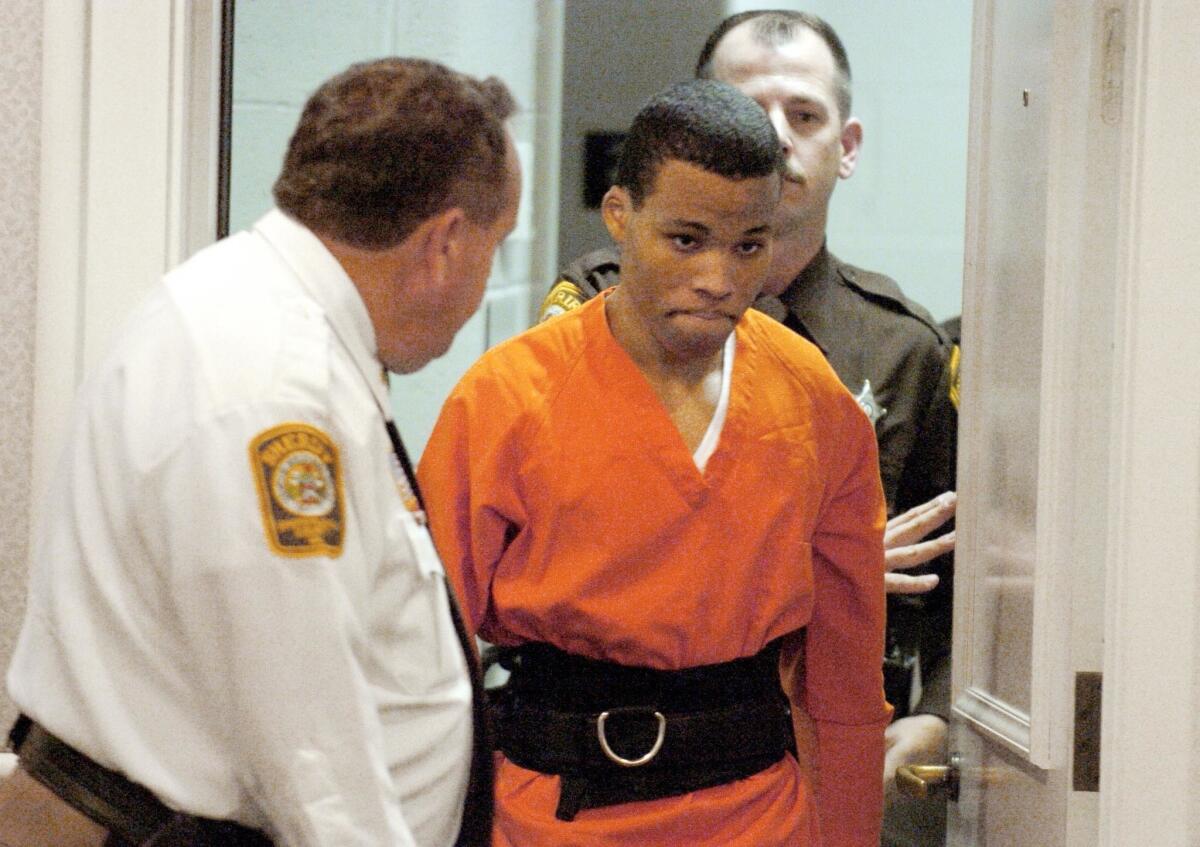Even Beltway sniper Lee Boyd Malvo deserves a chance at parole

- Share via
Although Lee Boyd Malvo’s case goes before the U.S. Supreme Court on Wednesday, it’s not just Malvo’s fate that’s on the line. The broader question is whether any person who commits a crime as a minor should be sentenced to life in prison without even the hope of eventual parole.
In any humane society the answer should be no.
Malvo was 17 when he joined John Allen Muhammad in a series of cold-blooded shootings that left 10 people dead in Virginia and Maryland over the course of three weeks in October 2002. They killed people at random from great distances by firing a Bushmaster rifle from a hole in the trunk of a Chevrolet Caprice.
Muhammad, an adult, was sentenced to death and ultimately executed in Virginia. Under the law then in effect, a jury could have returned a death verdict against Malvo as well, but instead sentenced him to life without parole.
In a series of later rulings in other cases, the high court invalidated the death penalty for people who committed their crimes as juveniles, then rejected most (but not all) sentences of life without parole for them, then made those rulings retroactive.
The reason is straightforward and rational. Juveniles are still developing. Their brains are works in progress. Their ability to make sound decisions, assess consequences, control impulses or consider moral questions falls short of the standard demanded of adults. Their diminished capacity creates diminished culpability and accordingly should be reflected in different punishment.
The Supreme Court rulings that restrict punishment for juveniles leave open the possibility of life without parole for perpetrators “whose crime reflects irreparable corruption” rather than “the transient immaturity of youth.”
But how could a jury ever make that determination at the time of sentencing? The depravity of the crime committed by an immature perpetrator tells us little about who he or she will be as an adult after spending a decade or more in prison. If the irreparable-versus-transient distinction can ever be made, it can be made only after examining the adult. In other words, it’s a determination to be made years later, by a parole board.
The questions in Wednesday’s hearing will include whether the Supreme Court’s prior restrictive rulings apply only to cases in which life sentences were mandatory, or also cases like Malvo’s, in which the sentencing court had discretion to impose death, or life with parole, but opted for life without parole.
It’s a key point for the court but in the end it’s secondary. The real question is whether Malvo or any other inmates who committed their crimes as juveniles have a chance at eventual parole. They should.
More to Read
A cure for the common opinion
Get thought-provoking perspectives with our weekly newsletter.
You may occasionally receive promotional content from the Los Angeles Times.









